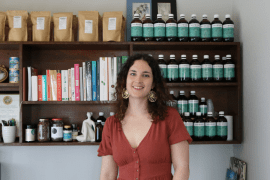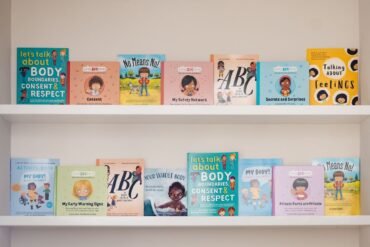By Jo Bealey
As I battle through a bout of writer’s block for my monthly blog, my thoughts drift towards the parents who join me for therapy. What do they bring to our sessions, and what are they seeking from our time together? A recurring theme emerges-stress. It seems to be a constant companion for many mothers, not just in my therapy room but among friends, associates, and co-workers. We’re all mothers singing the same stress-filled song. We’re overwhelmed.
It saddens me that the journey of motherhood, for many, is not one of fulfilment or joy but a repetitive chorus of stress-financial worries, concerns about relationships, activities, childcare, and the persistent question of whether we’re doing enough or being enough for our children. It strikes me that, for many, motherhood has become a journey of survival rather than one of thriving.
I can’t help but ponder whether stress has always been an inherent companion to the journey of motherhood or if there’s something distinct about our generation that has elevated it to new heights.
We live in an era of information at our fingertips, heightened self-awareness, and seemingly higher expectations for ourselves. Is it due to comparison? The ability to peek into other families’ worlds through Instagram, a glimpse into seemingly perfect lives with new prams, matching outfits, and the portrayal of having all the ducks in a row. Or is it because mothers today are expected to do more than ever before?
I can’t help but ponder whether stress has always been an inherent companion to the journey of motherhood or if there’s something distinct about our generation that has elevated it to new heights.
We’re juggling careers, relationships, and self-care alongside the responsibilities of raising a child. In the pursuit of gender equality, women have embraced professional roles (which I love!), and more mothers are working throughout their pregnancies. Yet, there seems to be an expectation to maintain traditional caregiving and housekeeping roles. This duality significantly contributes to the stress experienced by mothers today.
Constant connectivity blurs the boundaries between work and personal life, making it challenging for mothers to establish a clear distinction between their caregiving role and work. We’re never fully switched off into one role or the other.
My role extends beyond providing coping mechanisms for the stressors of modern motherhood. It involves exploring the historical, societal, and cultural contexts that shape our perceptions of what it means to be a mother. It’s about rediscovering the primal connection between a mother and her child, building attachment, and helping mothers navigate the expectations society places upon them.
After all, We inhabit the same bodies and brains that mothers did thousands of years ago. Our maternal brains, the epicenter of our caregiving capabilities, remain unchanged. This prompts the question: Has motherhood always been this way, or have we, in our relentless pursuit of progress, inadvertently complicated the simplicity of motherhood?
At its core, motherhood is an experience that transcends time and cultures. There is an ebb and flow of love, sacrifice, and challenges. Is the stress we feel today not a new phenomenon but a product of the complex world we’ve created around ourselves? Is stress now an inseparable companion to the journey of motherhood, or have we, unwittingly, allowed stress to overshadow the profound joy that should accompany the miracle of new life?











